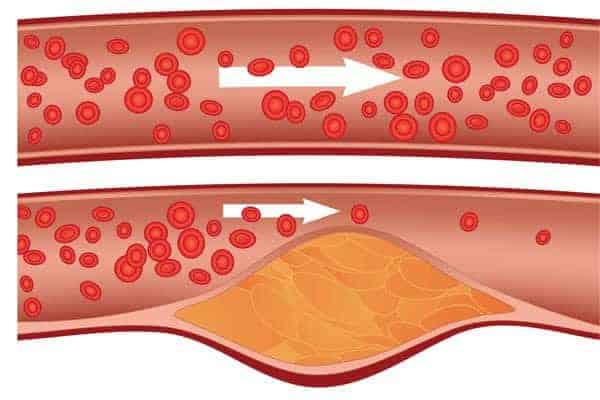How Cutting Back on Meat Could Be the Most Powerful Way to Help the Planet
The food we eat doesn’t just affect our health—it also leaves a powerful mark on the environment. Raising animals for meat uses vast amounts of land, water, and energy, and generates significant greenhouse gas emissions. As climate change becomes a growing global concern, experts are urging people to consider how their dietary habits impact the planet. Choosing what we put on our plates is one of the most direct ways individuals can take action for sustainability. In fact, the link between meat consumption and environmental harm is now widely recognized by scientists and environmental groups worldwide.
1. Lowering Greenhouse Gas Emissions

Livestock farming is a major contributor to climate change, producing potent greenhouse gases such as methane and nitrous oxide. Compared to plant-based foods, meat—especially beef and lamb—generates far more emissions per serving. By choosing to eat less meat, individuals can dramatically reduce their personal carbon footprints. Some regions, like the Netherlands and parts of Scandinavia, have seen emissions drop as more people shift toward plant-forward diets. This simple dietary change can be a powerful tool in the fight to slow global warming.
2. Saving Water Resources

Producing meat, particularly beef, requires enormous amounts of water—far more than growing plant-based proteins like beans or lentils. For example, it takes about 1,800 gallons of water to produce just one pound of beef, while a pound of beans requires only around 43 gallons. With freshwater scarcity becoming a pressing issue in many parts of the world, reducing meat consumption is a crucial step toward water conservation. Choosing plant-based meals can help safeguard water resources for future generations.
3. Preserving Forests and Wildlife

Large areas of forest, especially in the Amazon, are being cleared to make room for livestock grazing and to grow feed crops like soy. This deforestation destroys habitats, threatening countless plant and animal species with extinction. Research shows that reducing global demand for meat could significantly slow forest loss and help preserve vital ecosystems. By choosing to eat less meat, individuals help protect forests and the rich biodiversity they support, offering endangered species a better chance at survival.
4. Reducing Pollution from Animal Agriculture

Large-scale animal farming generates vast amounts of manure and often relies on chemical fertilizers and pesticides for feed crops. This leads to runoff that pollutes rivers, lakes, and groundwater, harming aquatic life and threatening drinking water supplies. Compared to most crop farming, animal agriculture produces higher concentrations of water pollution. Communities near factory farms can suffer from foul odors and contaminated water, while natural ecosystems experience significant disruption.
5. Easing the Pressure on Land Use

Producing meat, especially beef, demands far more land than growing lentils, beans, or vegetables. For instance, a serving of beef can require up to 20 times more land than a serving of plant protein. By reducing meat consumption, less land is needed for grazing and feed crops, opening possibilities for land restoration and rewilding. This shift could help revive natural habitats and enhance carbon storage across landscapes.
6. Supporting Global Food Security

A large portion of crops grown worldwide are used to feed livestock instead of people, reducing overall food system efficiency. It is estimated that only about 12% of the calories fed to animals end up as calories consumed by humans. If more crops were directed toward feeding people directly, food supplies could increase and help ease global hunger. Shifting toward plant-based diets can make food distribution more equitable and bolster food security for millions around the world.
7. Decreasing Antibiotic Resistance

Animal agriculture relies heavily on antibiotics to promote growth and prevent disease in crowded conditions, often using more antibiotics than are prescribed to humans. This widespread use fuels the rise of antibiotic-resistant bacteria, posing a serious threat to global health. By reducing demand for meat, particularly from industrial farms, we can lower the need for antibiotics in agriculture. This change helps preserve the effectiveness of these vital medicines and protects public health worldwide.
8. Lowering the Energy Footprint of Our Diets

Meat production is highly energy-intensive, requiring significant fossil fuel input for growing animal feed, raising livestock, and processing and transporting meat. Producing one calorie of beef can take up to 20 times more energy than producing a calorie of grains or legumes. Switching to plant-based foods reduces this energy demand, making our diets more sustainable and conserving resources for the future.
9. Improving Air Quality

Large animal farms release ammonia and other air pollutants, which can worsen air quality and contribute to respiratory problems in both rural and urban areas. Research shows livestock operations emit far more ammonia than crop farming, impacting public health and the environment. Reducing meat production and consumption can help lower these emissions, leading to cleaner air and healthier communities for everyone.
10. Encouraging More Sustainable Agriculture

As demand for meat decreases, farmers are motivated to adopt more sustainable practices, such as regenerative agriculture and diversified cropping systems. These methods restore soil health, enhance biodiversity, and reduce the need for chemical inputs. Regenerative farming, for example, focuses on rebuilding soil organic matter and capturing carbon, benefiting both the environment and local communities. A shift toward plant-based diets can accelerate the transition to these innovative, eco-friendly approaches.
11. Promoting Animal Welfare

Industrial animal farming often involves overcrowded and stressful conditions for millions of animals, raising serious ethical concerns. Chickens, pigs, and cows in large-scale operations may face confinement, lack of enrichment, and inhumane treatment. In contrast, plant agriculture does not involve direct suffering of sentient animals. By choosing to eat less meat, individuals can help reduce the demand for intensive animal farming, ultimately leading to less animal suffering and better welfare standards.
12. Inspiring a Global Movement for Change

The shift toward plant-based diets is gaining momentum worldwide, influencing food policies, business strategies, and public attitudes. Cities like New York have introduced “Meatless Mondays” in schools, while organizations such as the Environmental Working Group promote sustainable eating. As more individuals make conscious choices, demand for plant-based foods grows, inspiring innovation and cultural change. These collective actions build a powerful global movement, proving that small dietary changes can add up to a significant positive impact for the planet.
Conclusion: The Ripple Effect of Eating Less Meat

Cutting back on meat is one of the most powerful—and accessible—ways to help the planet. From lowering greenhouse gas emissions to preserving water, forests, and wildlife, the benefits reach far beyond individual plates. Every small change, whether it’s a meatless meal or a new plant-based recipe, contributes to a healthier environment and society. Collective action starts with personal choices. By embracing more sustainable eating habits, we create a ripple effect that can transform food systems and inspire positive change for generations to come.
.article-content-img img { width: 100% }




